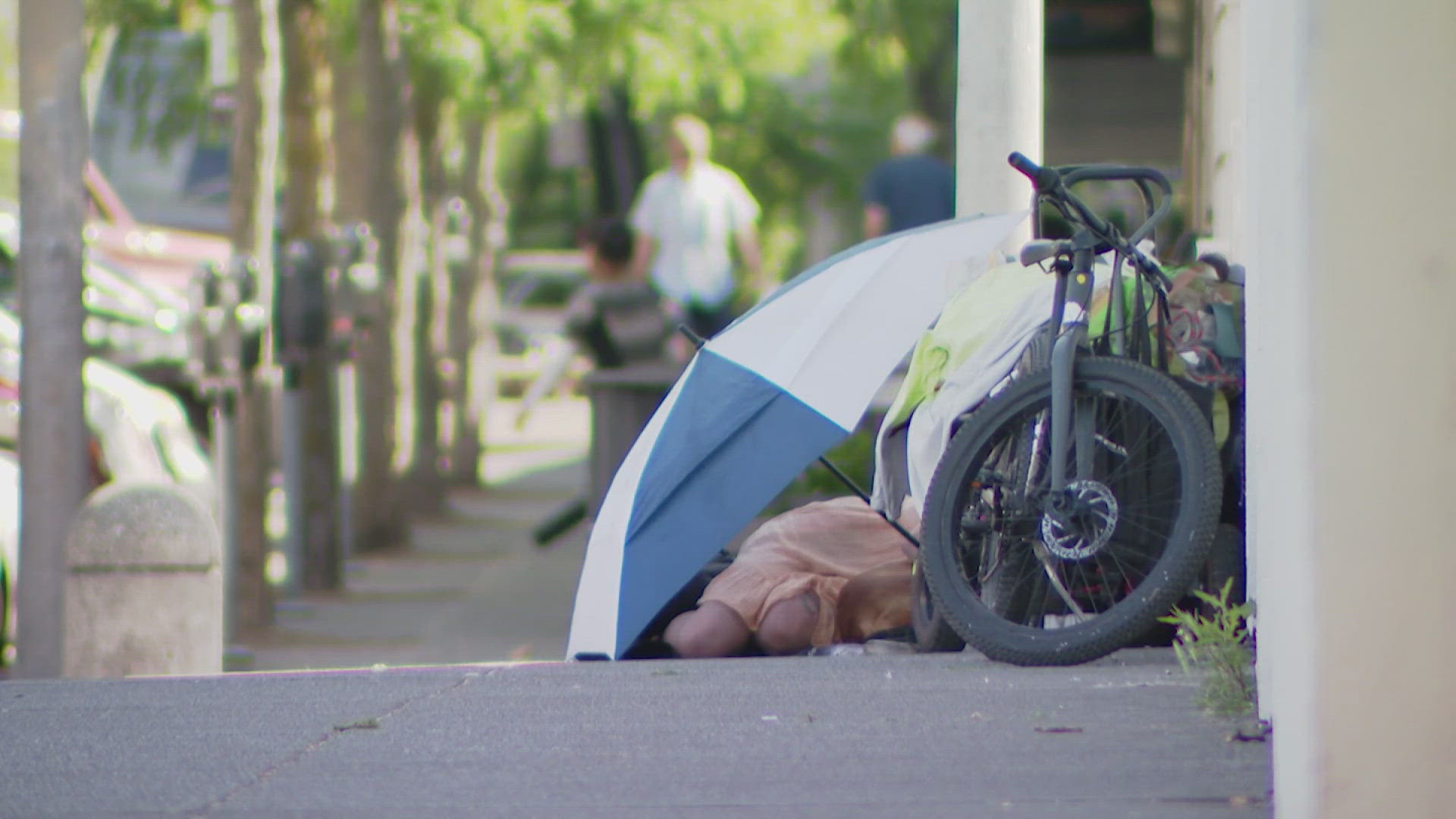BELLINGHAM, Wash. — Nationwide, 20 homeless people die every day. In Whatcom County, the number is up to two people per week, and the trends don't look good.
Outreach worker Cheri Johnson checks in on homeless folks getting a meal at Bellingham's Faith Lutheran Church. They're people she calls friends — and said she is increasingly worried about them.
"It's almost in the back of the mind, death is happening a lot. When you see it first hand it hits home. It's devastating. It's a loss of a human life," Johnson said.
Increasingly, living on the streets in Whatcom County means dying on the streets.
In 2020, 39 unhoused people passed. That number grew to 46 people in 2021, then 57 people the following year. Last year, the county had 84 people who are homeless die.
Through the first six months of this year, 56 homeless people have already died. That's on pace for 112 deaths, which would be yet another record — nearly triple the number in 2020.
Johnson, who works for Bellingham's Opportunity Council, sums all those numbers up with two words. "I'm sad, frustrated," she said.
Cities across the country, including Bellingham, hold annual remembrances for those lost.
Among the factors driving the surge are the prevalence and lethality of fentanyl, gun violence in camps, and disturbingly, more senior citizens being pushed out of their homes.
The federal government's annual Homeless Assessment Report finds, nationwide, nearly one in six people on the street is over the age of 55. That's approximately 100,000 people, a number exacerbated by the post-pandemic economy.
"That's associated with rapidly rising rents and, of course, seniors on fixed incomes just can't adjust to that," said Opportunity Council Executive Director Greg Winter.
In Whatcom County, outreach workers try to get people who are elderly and disabled into what little emergency housing there is. They then put them on a list for permanent housing, but it's often too late.
"Some of those waits are very long and there are individuals who are on that list and will be deceased before they can move into their housing," said Johnson.
There is good news: A new shelter run by Lighthouse Ministries will open this fall, doubling the number of beds in the Bellingham to 400. It will include facilities specifically for families, senior citizens and the infirmed.
Until that day comes, Johnson and her outreach team continue trying to keep the streets as safe as possible.
"It's just showing up and just being here right along side them," she said. "We serve them as best we can."

